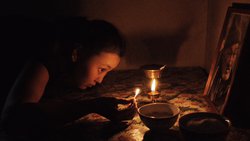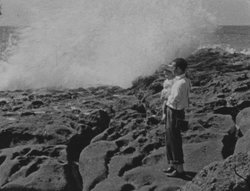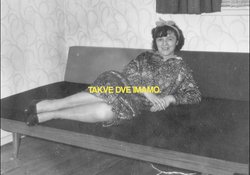AWARDS 2019
Jury composed by Jaimie Baron, Cristina Mateus and Filipe Martins

Fonseca Port Award - Best Feature Film
CAMP ON THE WIND’S ROAD, by Nataliya Kharlamova
Jury statement
Beautifully and respectfully filmed, Camp on the Wind’s Road is an ethnographic film in which the subjects seem fully in control of their own representation. Empathetic, patient and observant, the camera offers a view of a family remote to most of us in geography, but close in its members’ navigation of the shared human experiences of grief and perseverance.

HONORABLE MENTION - Feature Film
Retirement Party, by Assaf Ehrenreich
Jury statement
In this intimate and raw home movie, the camera inhabits the space between family members, documenting even the moments in which the subjects get angry at the camera and its presence. Accepting the challenge of making images of a difficult subject – a mother’s illness and its effects on her family – Retirement Party allows us to probe the limits of what we can know and understand about another family’s private struggle.

Best Short Film Award
Maelstrom, by Misja Pekel
Jury statement
By gathering together found footage of Syria taken before and during the current war, Maelstrom merges the intimate with the political. In its poetic appropriation of the found materials, it proffers a compelling vision of a place that no longer exists, along with a moving impression of the inner experiences of those who have left their homeland behind.

HONORABLE MENTION - Short Film
YO FUI ANDERSSEN / I WAS ANDERSSEN, by RAÚL RIEBENBAUER
Jury statement
In this statement of love from the filmmaker to his dead father, each image is imbued with deep feeling, as the filmmaker uses a series of rituals to make peace with his familial past. In I Was Anderssen, a son finds redemption through the act of making and sending a cinematic letter.

HONORABLE MENTION - Short Film
O MAR ENROLA NA AREIA, by Catarina Mourão
Jury statement
Through a blending of fiction and archive, O Mar Enrola Na Areia tells the story of the “whistle man,” who may have been a real figure or a myth. In presenting a multiplicity of viewpoints and narratives of this man, the film deftly sutures together a range of archival images to create a sensorial milieu of the Portuguese seaside in an earlier era.

HONORABLE MENTION - Short Film
THE PLACE FROM WHERE I WRITE YOU LETTERS, by NIKOLINA BOGDANOVIĆ
Jury statement
Presenting a series of seemingly banal still images accompanied by text taken from letters written by the filmmaker’s great-aunt in Germany back to family in Zagreb, The Place from Where I Write You Letters suggests both irony and tenderness toward an irretrievable moment from the past. While the celebration of then-novel Western commodities may now seem quaint, the pictures and words revive a sense of genuine and naïve joy.